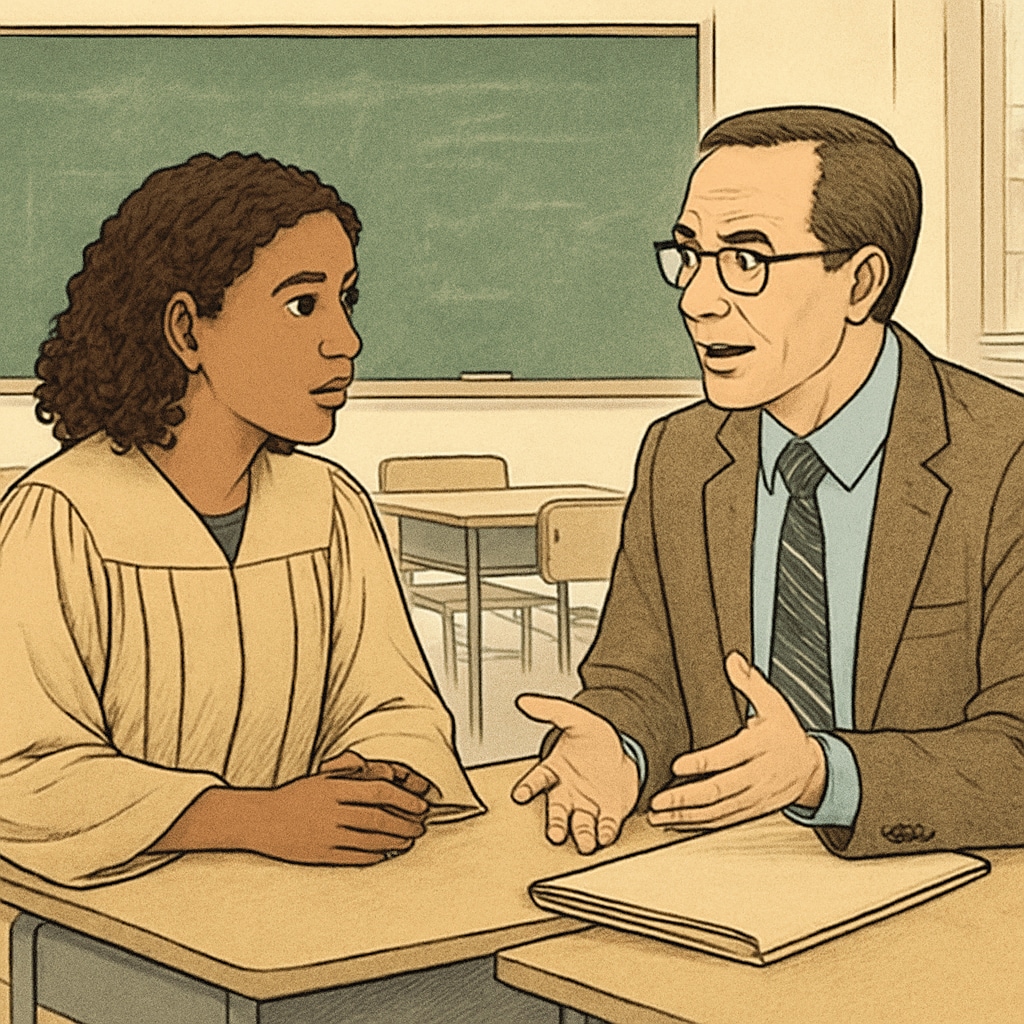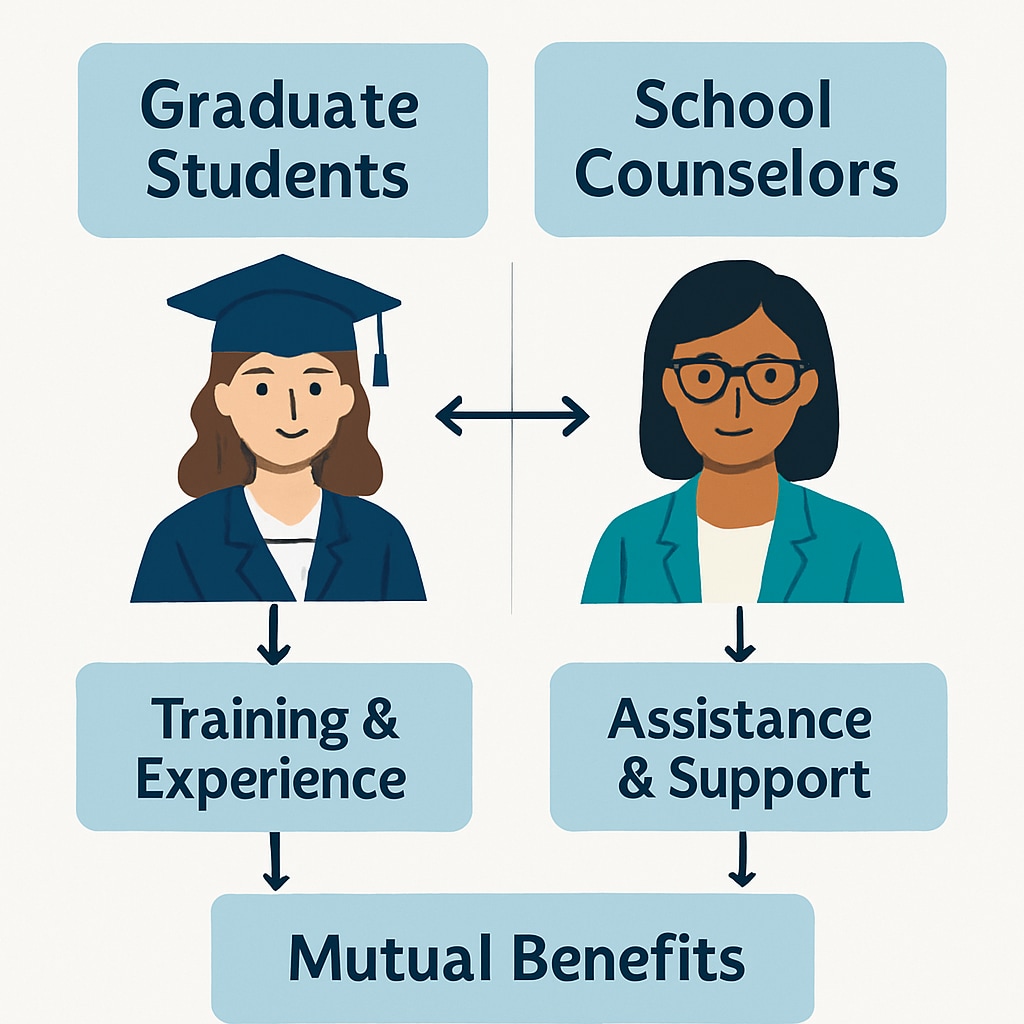Establishing meaningful academic connections between graduate students and K12 school counselors is an invaluable step toward bridging theoretical research and real-world educational practice. Conducting interviews with school counselors as part of graduate student assignments not only enriches academic research but also provides counselors with a platform to share their on-the-ground expertise. However, fostering these connections can pose challenges, such as logistical barriers and communication gaps. This article highlights the dual benefits of such collaborations and offers practical strategies for facilitating effective academic dialogues.
Why Graduate Students Should Engage with K12 School Counselors
K12 school counselors play a pivotal role in shaping students’ academic and personal development. Their insights into student needs, school policies, and systemic challenges are invaluable for graduate students conducting education-related research projects. Interviews with these professionals allow graduate students to:
- Gain firsthand understanding of counseling techniques and challenges.
- Validate theoretical assumptions through practical insights.
- Develop research that is both relevant and impactful for schools.
For example, a graduate student studying mental health support in schools can greatly benefit from a counselor’s perspective on implementing social-emotional learning programs. These real-world insights help shape research conclusions that are both accurate and practical.

Challenges in Establishing Academic Dialogues
While the benefits of collaboration are clear, creating these connections is not without hurdles. Some common challenges include:
- Scheduling Conflicts: Counselors often have demanding workloads, making it difficult to allocate time for interviews.
- Communication Barriers: Graduate students unfamiliar with school environments may struggle to approach counselors effectively.
- Privacy Concerns: Discussions involving student data must adhere to strict confidentiality regulations, such as FERPA (Family Educational Rights and Privacy Act) in the United States.
To overcome these challenges, both parties must approach the collaboration with clear expectations and mutual respect.
Practical Strategies for Effective Engagement
Building a productive partnership between graduate students and school counselors requires careful planning and communication. Here are some strategies to ensure successful interactions:
- Start Early: Graduate students should initiate contact with counselors well in advance, providing ample time to schedule interviews.
- Be Transparent: Clearly outline the purpose of the interview, the expected duration, and how the information will be used.
- Respect Professional Boundaries: Avoid asking questions that may compromise student privacy or the counselor’s professional ethics.
- Provide a Framework: Share a list of questions or topics beforehand to help counselors prepare for the discussion.
By implementing these strategies, graduate students can foster a collaborative environment that benefits both their research and the counselors’ professional development.

The Mutual Benefits of Collaboration
The exchange of ideas between graduate students and K12 counselors is a two-way street. While graduate students benefit from practical insights, counselors also gain from engaging with academic research. They can:
- Stay updated on the latest educational theories and methodologies.
- Contribute to research that may influence future school policies and practices.
- Reflect on their own practices through meaningful dialogue.
For instance, a study on career counseling programs might provide counselors with evidence-based strategies to enhance their own practices. This collaboration ultimately strengthens the bridge between research and application in the education sector.
Conclusion: Building Bridges for the Future
Fostering academic connections between graduate students and K12 school counselors is essential for advancing both educational research and practice. By overcoming logistical and communication challenges, these collaborations can unlock a wealth of mutual benefits. Graduate students gain invaluable real-world insights, while counselors contribute to shaping research that directly impacts educational outcomes. As a result, the dialogue between these two groups not only enriches their respective fields but also lays the groundwork for a more informed and effective education system.
In the words of John Dewey, “Education is not preparation for life; education is life itself.” By bridging the gap between academia and practice, graduate students and school counselors can work together to make education a transformative force for all.


